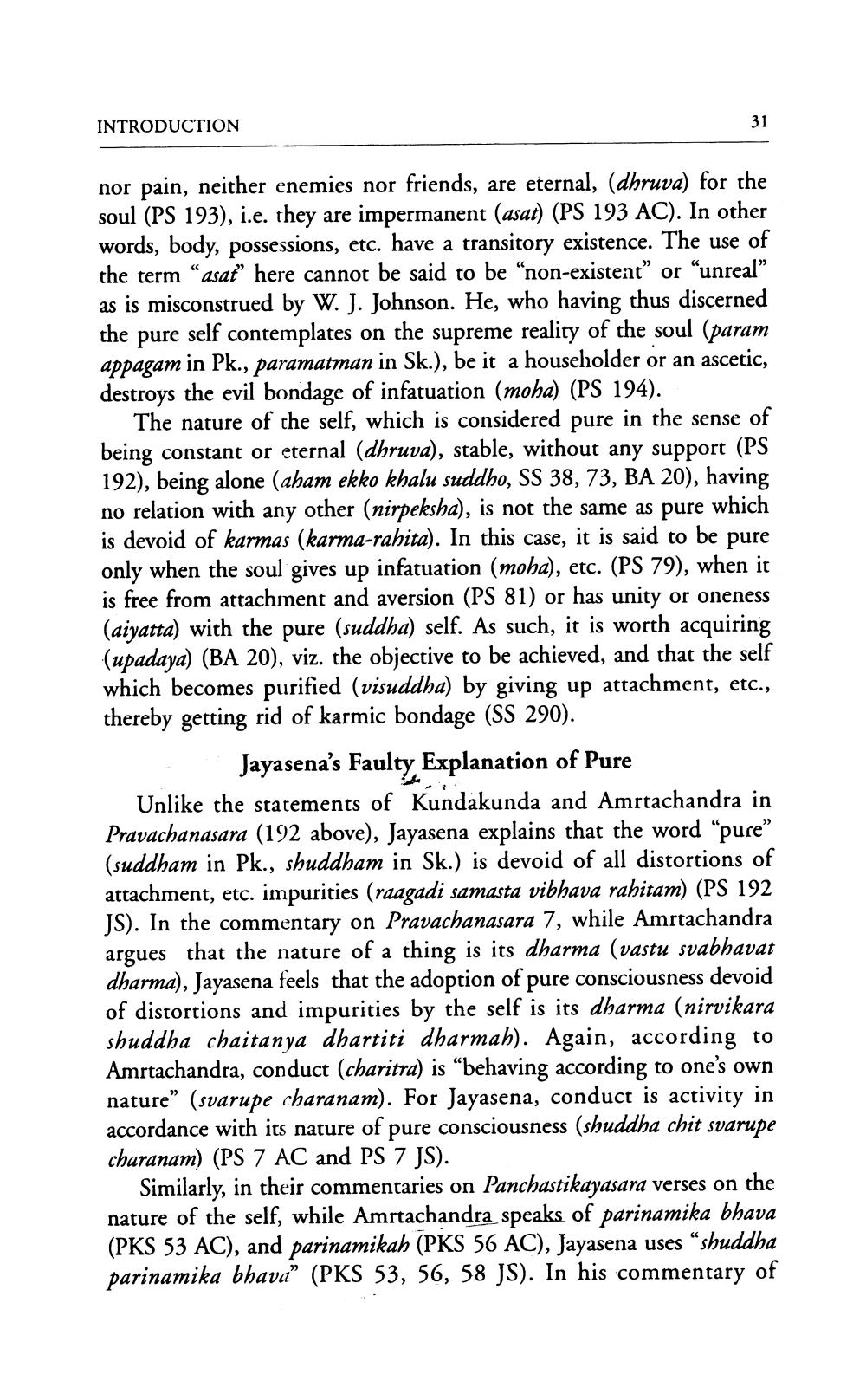________________
INTRODUCTION
nor pain, neither enemies nor friends, are eternal, (dhruva) for the soul (PS 193), i.e. they are impermanent (asat) (PS 193 AC). In other words, body, possessions, etc. have a transitory existence. The use of the term “asať here cannot be said to be “non-existent” or “unreal” as is misconstrued by W. J. Johnson. He, who having thus discerned the pure self contemplates on the supreme reality of the soul (param appagam in Pk., paramatman in Sk.), be it a householder or an ascetic, destroys the evil bondage of infatuation (moha) (PS 194).
The nature of the self, which is considered pure in the sense of being constant or eternal (dhruva), stable, without any support (PS 192), being alone (aham ekko khalu suddho, SS 38, 73, BA 20), having no relation with any other (nirpeksha), is not the same as pure which is devoid of karmas (karma-rahita). In this case, it is said to be pure only when the soul gives up infatuation (moha), etc. (PS 79), when it is free from attachment and aversion (PS 81) or has unity or oneness (aiyatta) with the pure (suddha) self. As such, it is worth acquiring (upadaya) (BA 20), viz. the objective to be achieved, and that the self which becomes purified (visuddha) by giving up attachment, etc., thereby getting rid of karmic bondage (SS 290).
Jayasena's Faulty Explanation of Pure Unlike the statements of Kundakunda and Amrtachandra in Pravachanasara (192 above), Jayasena explains that the word “pure” (suddham in Pk., shuddham in Sk.) is devoid of all distortions of attachment, etc. impurities (raagadi samasta vibhava rahitam) (PS 192 JS). In the commentary on Pravachanasara 7, while Amrtachandra argues that the nature of a thing is its dharma (vastu svabhavat dharma), Jayasena feels that the adoption of pure consciousness devoid of distortions and impurities by the self is its dharma (nirvikara shuddha chaitanya dhartiti dharmah). Again, according to Amrtachandra, conduct (charitra) is “behaving according to one's own nature” (svarupe charanam). For Jayasena, conduct is activity in accordance with its nature of pure consciousness (shuddha chit svarupe charanam) (PS 7 AC and PS 7 JS).
Similarly, in their commentaries on Panchastikayasara verses on the nature of the self, while Amrtachandra speaks of parinamika bhava (PKS 53 AC), and parinamikah (PKS 56 AC), Jayasena uses “shuddha parinamika bhava” (PKS 53, 56, 58 JS). In his commentary of




